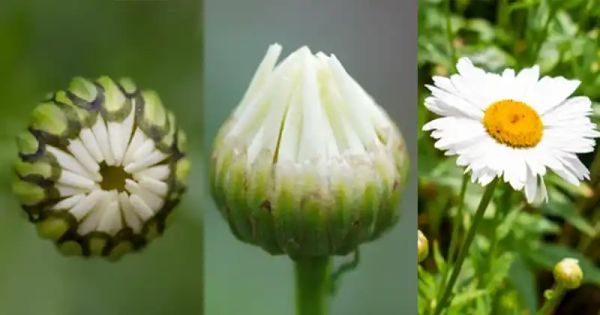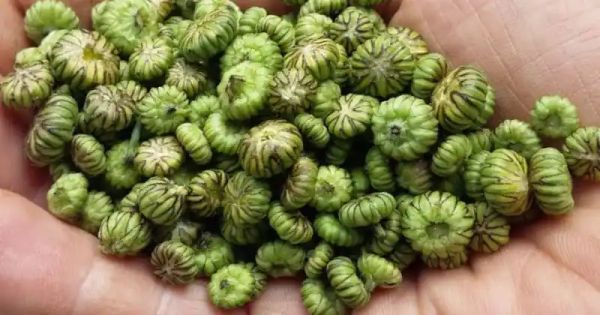In the world of flowering plants, daisies are known for their beauty and purity. But did you know that certain daisy varieties have edible buds that can provide potential health benefits? This article aims to explore the different types of daisies and highlight which buds are safe to eat. It’s important to remember that while this guide offers valuable information, it’s always best to consult a professional botanist or healthcare provider before foraging or consuming edible plants.

Edibility of Common Daisy Buds
Let’s take a closer look at the most common daisy species and the edibility of their buds:
Common Daisy: The buds of the common daisy are widely recognized for their use in traditional European medicine. They are edible and can be enjoyed in various ways.
Shasta Daisy: Similar to the common daisy, Shasta daisy buds are also edible but less commonly consumed.
Oxeye Daisy: These buds have a mild flavor and are used in salads and herbal teas. They are praised for their health benefits.
Gerbera Daisy: While the flowers of Gerbera daisies are popular in arrangements, their buds are generally not consumed due to limited information on their edibility and medicinal uses.
Painted Daisy: The buds of painted daisies are not edible and should be strictly avoided as they can be toxic.
Safety and Recommendations
When considering adding daisy buds to your diet, keep these safety tips in mind:
- Proper Identification: Make sure you correctly identify the daisy species to avoid consuming non-edible or toxic varieties.
- Consultation: If you’re new to foraging or using daisies for health purposes, it’s best to consult with a professional.
- Allergic Reactions: Start with small amounts of daisy buds to test for any allergic reactions.
By understanding which daisy buds are safe to consume and how to prepare them, we can explore new culinary and medicinal possibilities provided by these remarkable plants.
Health Benefits of Edible Daisy Buds
Daisies are not only visually appealing but their edible buds also offer a range of health benefits. Consuming buds from daisies like the common daisy, Shasta daisy, and Oxeye daisy can provide nutritional and medicinal advantages. Here are ten notable health benefits associated with edible daisy buds:
- Rich in Antioxidants: Daisy buds contain antioxidants that help reduce the risk of chronic diseases.
- Anti-inflammatory Properties: These buds can alleviate symptoms of inflammatory conditions like arthritis.
- Supports Immune System: Daisy buds boost the immune system thanks to their vitamins and beneficial compounds.
- Skin Health: Applied topically or consumed, daisy bud nutrients promote healthier skin and reduce acne.
- Digestive Aid: Daisy buds help improve digestion and relieve common digestive issues.
- Natural Detoxification: Their diuretic properties support liver health and promote urinary tract function.
- Respiratory Benefits: Daisy buds can soothe the respiratory tract and help with coughs or colds.
- Heart Health: Some studies suggest that daisy bud compounds may help lower blood pressure and cholesterol levels.
- Sedative Effects: The mild sedative properties of daisy buds aid in relaxation and sleep quality.
- Nutrient-Rich: Daisy buds offer essential vitamins and minerals to support overall health.
These health benefits make edible daisy buds a valuable addition to a health-conscious diet. By incorporating them into your culinary practices, you not only add unique flavor and texture but also leverage their medicinal properties for enhanced wellness.

Maximizing the Benefits of Daisy Buds
Integrating daisy buds into your daily routine is a simple and effective way to enhance your overall wellness. Here are practical ways to incorporate them into your diet and lifestyle to make the most of their medicinal and nutritional advantages:
Culinary Uses of Daisy Buds
- Raw in Salads: Add fresh daisy buds to salads for a crisp, slightly bitter flavor and a burst of nutrients.
- Herbal Teas: Steep daisy buds in hot water to create a soothing herbal tea for relaxation and digestion.
- Cooked Dishes: Use daisy buds in soups, stews, or sauté them as a nutritious side dish.
Innovative Recipes
- Daisy Bud Pesto: Substitute daisy buds for basil in traditional pesto for a unique twist.
- Pickled Daisy Buds: Pickle daisy buds in vinegar with spices for a tangy and healthy condiment.
- Daisy Bud Infusions: Create infusions or decoctions with daisy buds for health-promoting drinks, soups, and sauces.
Tips for Maximizing Benefits
- Start Small: Gradually integrate daisy buds into your diet to see how your body reacts.
- Diverse Use: Mix daisy buds with other herbs and edible flowers to enjoy different flavors and health benefits.
- Topical Applications: Use daisy bud infusions in your skincare routine to take advantage of their anti-inflammatory properties.
By embracing daisy buds for their health benefits and unique flavor, we can enrich our understanding and appreciation of the natural benefits these plants offer. Let’s make daisy buds a staple in our quest for a more nutritious and balanced lifestyle, proving that even the smallest parts of nature can have a substantial impact on our well-being.



